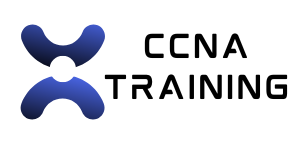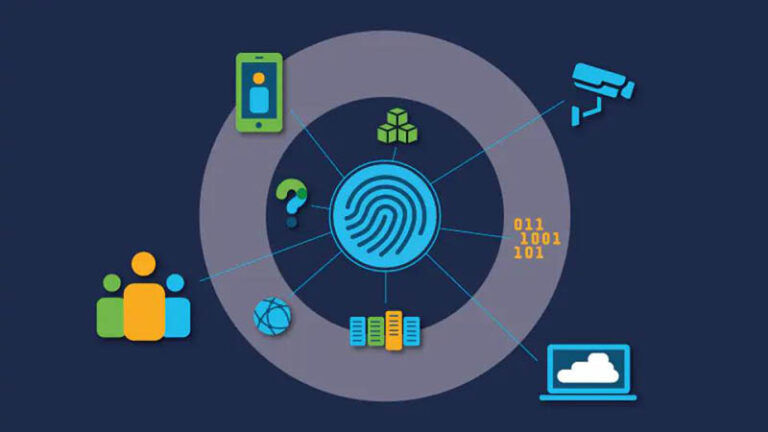Cisco’s certification program validates IT professionals’ skills in networking technologies. The program is structured into multiple levels: entry, intermediate, advanced, and specialized certifications. Each level is tailored to meet specific career needs and goals of IT professionals.
Understanding these different paths is crucial for selecting the most appropriate certification for one’s career trajectory. The certification paths are designed to allow progression from entry-level to more advanced and specialized certifications as professionals gain experience and expertise in networking. Each certification level builds upon the knowledge and skills acquired from the previous level.
IT professionals should carefully consider their career objectives when choosing a certification path to ensure alignment with their aspirations. A thorough understanding of Cisco’s certification offerings enables IT professionals to make informed decisions about their career development and select certifications that will best support their professional goals.
Key Takeaways
- Cisco offers certification paths for entry-level, intermediate-level, advanced-level, and specialized skills.
- Entry-level certifications include CCENT and CCT, providing foundational knowledge in networking and technical support.
- Intermediate-level certifications like CCNA and CCNP focus on more advanced networking skills and knowledge.
- Advanced-level certifications such as CCIE and CCDE demonstrate expert-level knowledge and skills in networking and design.
- Specialized certifications like CCNA Security and CCNA Wireless focus on specific areas within networking for specialized career paths.
Entry-Level Cisco Certifications
Entry-Level Certifications
The entry-level certifications include the Cisco Certified Entry Networking Technician (CCENT) and the Cisco Certified Technician (CCT). These certifications are ideal for individuals just starting their careers in IT and looking to gain a basic understanding of networking technologies.
CCENT and CCT Certifications
The CCENT certification is designed to validate the skills required for entry-level network support positions, while the CCT certification is focused on validating the skills required for onsite support and maintenance of Cisco networking devices. Both of these certifications provide a solid foundation in networking technologies and can serve as a stepping stone for individuals looking to pursue more advanced certifications in the future.
Benefits of Entry-Level Certifications
By obtaining these entry-level certifications, IT professionals can demonstrate their commitment to learning and developing their skills in networking technologies.
Intermediate-Level Cisco Certifications

After obtaining entry-level certifications, IT professionals can progress to intermediate-level certifications that are designed to validate more advanced skills and expertise in networking technologies. The intermediate-level certifications offered by Cisco include the Cisco Certified Network Associate (CCNA) and the Cisco Certified Design Associate (CCDA). These certifications are ideal for individuals who have some experience in networking and are looking to further develop their skills and knowledge in this area.
The CCNA certification is designed to validate the skills required for network professionals who perform installation, operation, and troubleshooting of small to medium-sized networks. On the other hand, the CCDA certification is focused on validating the skills required for network design professionals, including network engineers, systems engineers, and sales engineers. Both of these certifications provide a deeper understanding of networking technologies and can help IT professionals advance their careers in this field.
By obtaining intermediate-level certifications, IT professionals can demonstrate their expertise in networking technologies and increase their value in the job market.
Advanced-Level Cisco Certifications
For IT professionals who have gained significant experience and expertise in networking technologies, Cisco offers advanced-level certifications that are designed to validate advanced skills and knowledge in this area. The advanced-level certifications include the Cisco Certified Network Professional (CCNP) and the Cisco Certified Design Professional (CCDP). These certifications are ideal for individuals who have extensive experience in networking and are looking to further enhance their skills and expertise in this field.
The CCNP certification is designed to validate the skills required for network professionals who plan, implement, verify, and troubleshoot local and wide-area enterprise networks. On the other hand, the CCDP certification is focused on validating the skills required for network design professionals who design advanced routing and addressing solutions for enterprise networks. Both of these certifications are highly respected in the industry and can open up new opportunities for IT professionals.
By obtaining advanced-level certifications, IT professionals can demonstrate their advanced skills and expertise in networking technologies and position themselves for more challenging and rewarding roles in this field.
Specialized Cisco Certifications
In addition to the entry-level, intermediate-level, and advanced-level certifications, Cisco also offers specialized certifications that are designed to validate specific skills and expertise in niche areas of networking technologies. The specialized certifications cover a wide range of topics, including security, collaboration, data center, service provider, and wireless technologies. These certifications are ideal for IT professionals who have a specific interest or expertise in one of these areas and are looking to further develop their skills and knowledge in that particular area.
Some of the specialized certifications offered by Cisco include the Cisco Certified Internetwork Expert (CCIE) in various tracks such as security, collaboration, data center, service provider, and wireless. These certifications are highly respected in the industry and are designed for experienced network professionals who have mastered a specific area of networking technologies. By obtaining specialized certifications, IT professionals can demonstrate their expertise in niche areas of networking technologies and position themselves as subject matter experts in these areas.
Choosing the Right Cisco Certification for Your Career Goals

When choosing a Cisco certification, it is important for IT professionals to carefully consider their career goals and aspirations. It is important to choose a certification that aligns with your career goals and will help you advance your career in the direction you desire. For individuals who are new to the field of networking, entry-level certifications such as CCENT or CCT can provide a solid foundation of knowledge and skills in networking technologies.
For those with some experience in networking, intermediate-level certifications such as CCNA or CCDA can help further develop their skills and expertise in this area. For individuals with extensive experience in networking, advanced-level certifications such as CCNP or CCDP can validate advanced skills and expertise in this field. Additionally, for those with a specific interest or expertise in niche areas of networking technologies, specialized certifications such as CCIE in security, collaboration, data center, service provider, or wireless can help demonstrate expertise in these areas.
By choosing the right Cisco certification for your career goals, you can position yourself for success in the field of networking and open up new opportunities for career advancement.
Resources for Cisco Certification Preparation
Preparing for a Cisco certification requires dedication and commitment to learning and developing your skills in networking technologies. There are various resources available to help IT professionals prepare for Cisco certifications, including study guides, practice exams, training courses, and hands-on experience. Study guides provide comprehensive coverage of the topics included in the certification exam and can help individuals understand the key concepts and principles related to networking technologies.
Practice exams allow individuals to test their knowledge and skills in a simulated exam environment, helping them identify areas where they need further study and preparation. Training courses provide structured learning experiences that cover the topics included in the certification exam and can help individuals gain a deeper understanding of networking technologies. Hands-on experience is also crucial for preparing for Cisco certifications, as it allows individuals to apply their knowledge and skills in real-world scenarios.
In addition to these resources, there are also online forums and communities where individuals can connect with other IT professionals who are preparing for Cisco certifications. These forums provide a platform for individuals to ask questions, share experiences, and seek advice from others who have already obtained the certification. By leveraging these resources, IT professionals can effectively prepare for Cisco certifications and increase their chances of success on the exam.
In conclusion, Cisco offers a comprehensive certification program that is designed to validate the skills and expertise of IT professionals in various networking technologies. The certification paths are divided into different levels, including entry-level, intermediate-level, advanced-level, and specialized certifications. By understanding the different certification paths offered by Cisco, IT professionals can make informed decisions about their career development and choose the certifications that will help them achieve their professional goals.
With dedication and commitment to learning and developing their skills in networking technologies, IT professionals can effectively prepare for Cisco certifications and position themselves for success in the field of networking.
If you’re considering pursuing a Cisco certification, you may also be interested in learning more about the specific training and resources available. One helpful resource is the CCNA Training website, which offers a variety of courses and materials to help you prepare for your certification exam. You can find more information about their offerings on their website, including sample pages and details about securing a Cisco network.
FAQs
What are the different Cisco certification paths available?
There are several different Cisco certification paths available, including the Cisco Certified Entry Networking Technician (CCENT), Cisco Certified Network Associate (CCNA), Cisco Certified Network Professional (CCNP), and Cisco Certified Internetwork Expert (CCIE).
What is the Cisco Certified Entry Networking Technician (CCENT) certification?
The CCENT certification is an entry-level certification that validates the skills required for entry-level network support positions. It is a stepping stone to the CCNA certification.
What is the Cisco Certified Network Associate (CCNA) certification?
The CCNA certification is a more advanced certification that validates the ability to install, configure, operate, and troubleshoot medium-sized routed and switched networks.
What is the Cisco Certified Network Professional (CCNP) certification?
The CCNP certification is a professional-level certification that validates the ability to plan, implement, verify, and troubleshoot local and wide-area enterprise networks.
What is the Cisco Certified Internetwork Expert (CCIE) certification?
The CCIE certification is the highest level of certification offered by Cisco and validates expert-level knowledge and skills in network engineering.
How do I choose the right Cisco certification path for my career?
Choosing the right Cisco certification path for your career depends on your current skill level, career goals, and the specific job roles you are interested in pursuing. It’s important to carefully consider your options and seek guidance from experienced professionals or mentors in the field.















